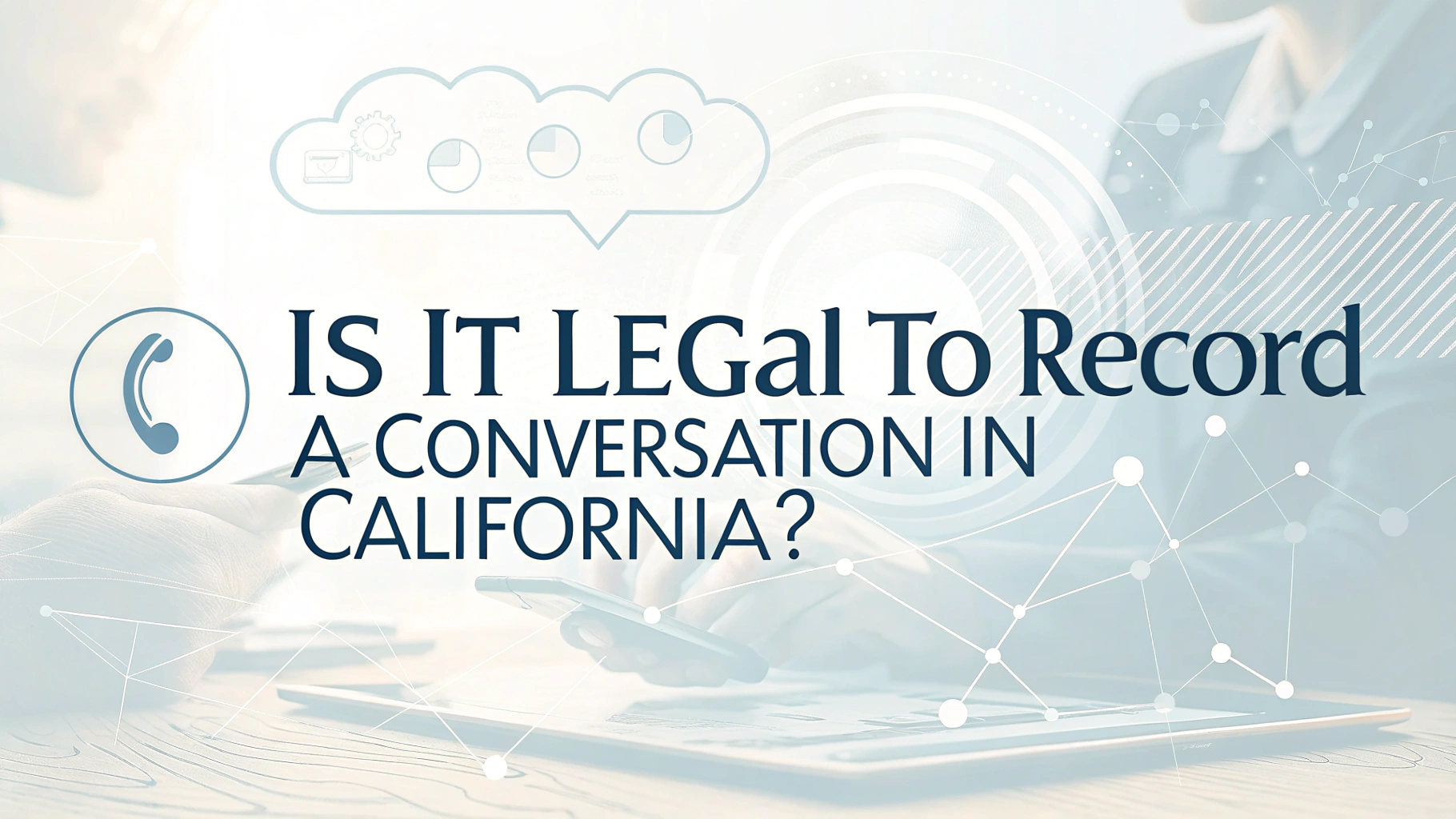California is one of the strictest states when it comes to recording conversations.
Under California’s two-party consent law (Penal Code § 632), it is illegal to record any confidential communication—whether in person or over the phone—unless all parties involved give their consent. This means that if you want to record a conversation in California, you must obtain permission from everyone participating in the discussion.

Violating this law can lead to serious criminal penalties, including fines and imprisonment. California defines “confidential communication” broadly, covering any conversation where a party has a reasonable expectation of privacy. This includes most private phone calls, in-person talks, and even some electronic communications.
Exceptions to California’s two-party consent law are very limited and usually involve public settings where there is no reasonable expectation of privacy, or when law enforcement acts under a court order.
If you want a comprehensive understanding of federal and state laws on recording in the United States, here is a complete guide.


